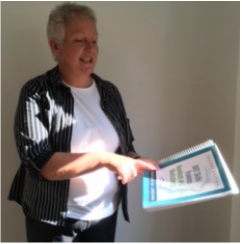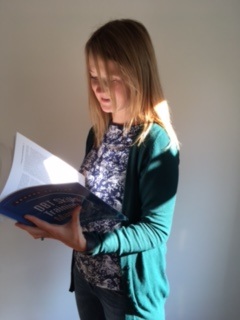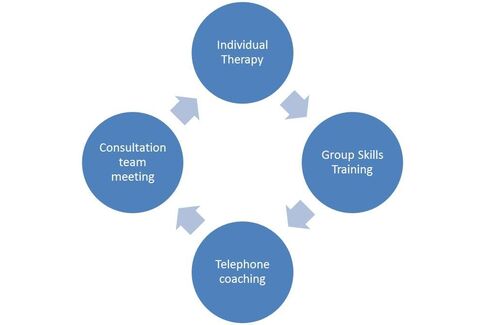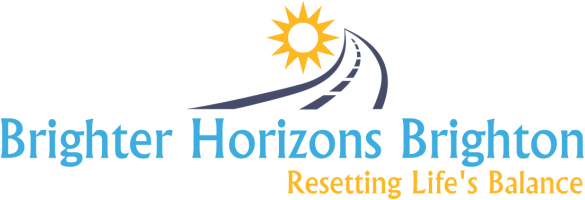
What is Dialectical Behaviour Therapy?
Dialectical Behaviour Therapy (DBT) is an innovative treatment model developed for treating people with Borderline Personality Disorder (BPD) by Professor Marsha Linehan. It is recommended in the National Institute for Clinical Excellence Guidelines (NICE, 2009) for the treatment of BPD. DBT can help individuals with BPD to stop self-harming, manage and understand emotions more effectively, improve relationship skills, work towards personal goals and build a life worth living. In addition to successful outcomes with BPD clients, the model is effective in treating a wide range of other disorders such as substance misuse, depression, post-traumatic stress disorder (PTSD), eating disorders and survivors of abuse. It is widely used and has been adapted to function in a variety of settings including working with children and adolescents and people with intellectual disabilities.
How does DBT work?
The evidence-based, full programme model consists of the following 4 core features:
Dialectical Behaviour Therapy (DBT) is an innovative treatment model developed for treating people with Borderline Personality Disorder (BPD) by Professor Marsha Linehan. It is recommended in the National Institute for Clinical Excellence Guidelines (NICE, 2009) for the treatment of BPD. DBT can help individuals with BPD to stop self-harming, manage and understand emotions more effectively, improve relationship skills, work towards personal goals and build a life worth living. In addition to successful outcomes with BPD clients, the model is effective in treating a wide range of other disorders such as substance misuse, depression, post-traumatic stress disorder (PTSD), eating disorders and survivors of abuse. It is widely used and has been adapted to function in a variety of settings including working with children and adolescents and people with intellectual disabilities.
How does DBT work?
The evidence-based, full programme model consists of the following 4 core features:

DBT has been found to be more effective than other therapy approaches such as standard Cognitive Behavioural Therapy due to the features outlined above. All four aspects of the treatment combine together leading to a reduction in harmful behaviours and an increase in quality of life. Individual therapy sessions are used to help clients to identify and solve problems in changing their behaviour (such as self-harm). The therapeutic relationship forms an important part of the treatment by supporting clients to stay in the treatment. The group sessions provide clients with an opportunity to learn and apply new skills. The group skills sessions aim to help clients identify and describe emotions, thoughts and behaviours, learn new ways of coping with strong emotions and develop skills in managing relationships. Telephone coaching supports clients between sessions if a crisis occurs and helps them to use the skills learned in group and individual sessions in real life situations. The Therapists' consultation meeting provides an opportunity for supervision and learning, allows for guidance and team working and keeps therapists on track. These four components are considered the essential ingredients to the excellent outcomes in DBT research.
The team at Brighter Horizons Brighton offer standard full programme outpatient DBT. Additionally we are available to meet with you and people you consider important in your life, and support you in enlisting their help to apply the skills acquired during therapy. For more in-depth information about the DBT model and its development, please click here.
Please contact us if you would like to discuss referral for treatment.
The team at Brighter Horizons Brighton offer standard full programme outpatient DBT. Additionally we are available to meet with you and people you consider important in your life, and support you in enlisting their help to apply the skills acquired during therapy. For more in-depth information about the DBT model and its development, please click here.
Please contact us if you would like to discuss referral for treatment.
We are recruiting now for the next DBT skills group which will run on Thursdays between 7-8.30pm at our consulting rooms in Preston Park. If you are interested in starting on the programme, please contact us to arrange an assessment.

